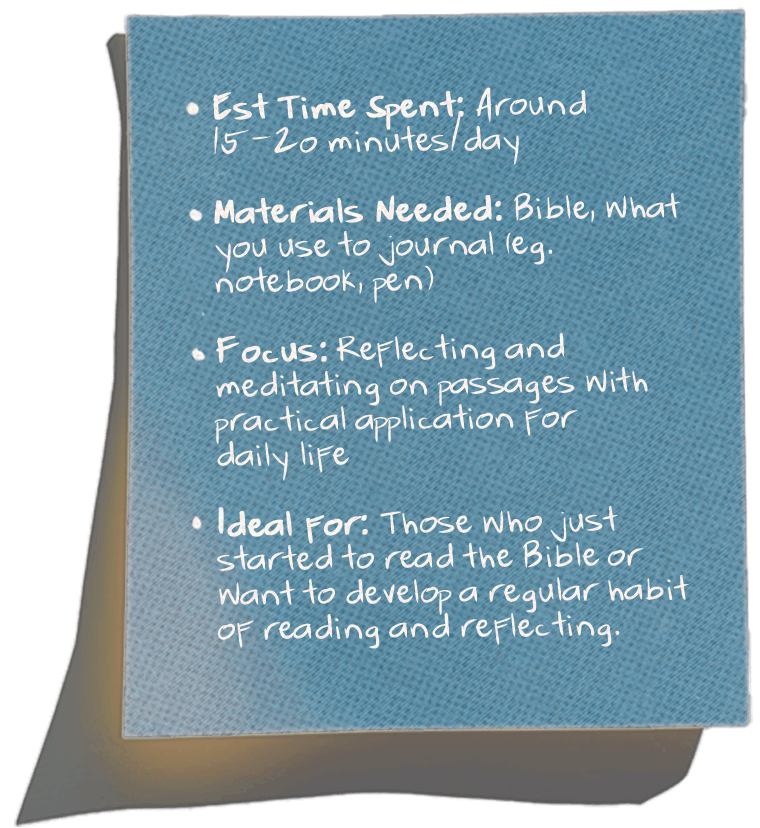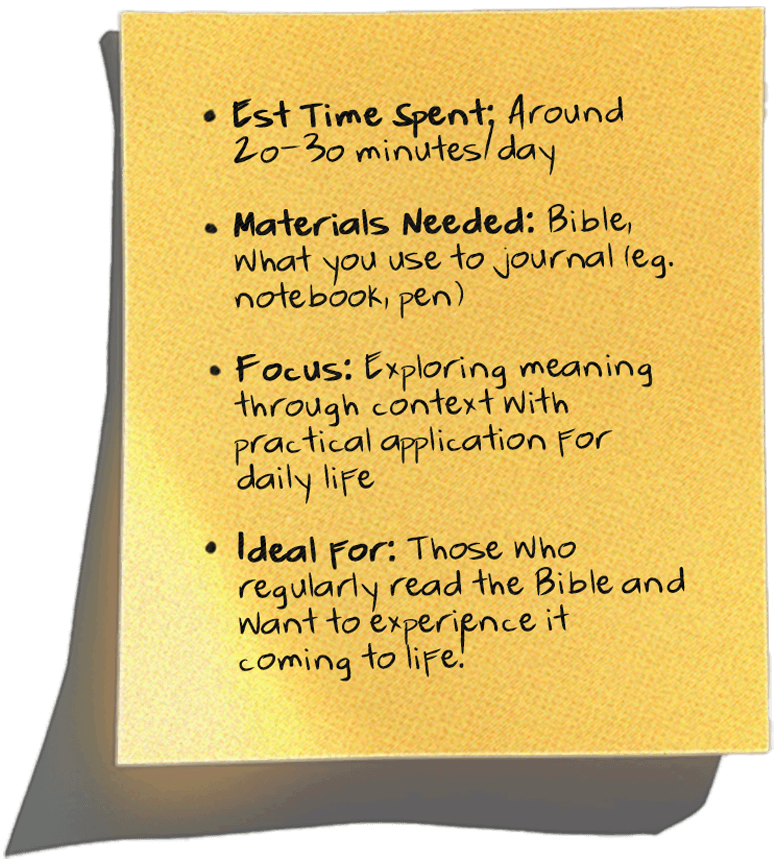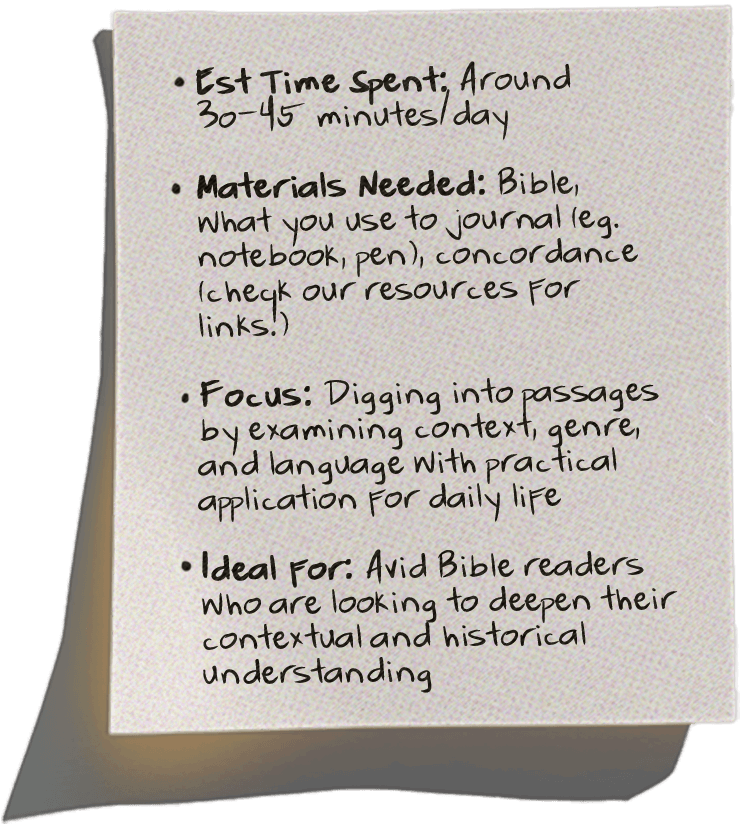The Bible is more than just a book, it’s a living testament of God’s love—written, preserved, and compiled so that we can know Jesus and his plan for our lives and eternity.
For October, our whole church family will be reading one chapter of the Bible daily and sharing our insights in our Connect Groups. We’ll also dive deeper during our Sunday Services on October 5, 12, and 19, with a series designed to help us discover that the Bible is so much more than good teaching — it’s the living word that leads us closer to Jesus.
During our Read My Bible series last year, we learned to approach Scripture in a new and fresh way — seeing the Bible through the lens of Jesus and discovering fresh revelation of who he is. If you want to revisit these teachings, watch the whole series through the links below.

We’re reading Galatians, Philippians, Ephesians, & Colossians
We’re reading a chapter a day, starting with the book of Galatians, then Philippians, Ephesians, and finally, Colossians. Watch the overviews of the books from BibleProject, and download a PDF of our Bible Plan so you can print it out or keep it on a device if you’d like to revisit the plan and the passages we read each day!

For this series, we’re encouraging Connect members to share their learnings with each other as we all grow in our discipline of reading the Bible. If you’re not in a Favor Connect Group, there’s always a chance to join one! Connects are small communities of 3–12 people who meet every two weeks to share life, grow in faith, pray for each other, and have fun together.
what does read my bible look like in a favor connect?
Step 1: Download the Bible Plan PDF
Go over the guide and follow along with our daily passages so we’re all reading together. Download the Bible Plan PDF here.
Step 2: Read the daily passage
Take time each day to reflect on what you are reading.
Step 3: Share in your group chat
Sometime during the day, post 1 sentence of your takeaway and 1 question about the chapter you read. Our Connect Leaders aren’t Bible scholars, but they’re here to walk with you, create a safe space for you to ask questions, and help you process your thoughts.
Our heart is simple: this isn’t about performing, ticking off a task, treating Bible reading like a religious checklist, or just gaining information. It’s about building a rhythm of spending time with God — growing in our love for the Bible, developing a hunger to know Jesus, and letting the Holy Spirit transform our lives so we can make him known.

1. Choose a Consistent Time
Set aside a specific time each day when you are least likely to be interrupted, whether it’s early morning, during lunch, or before bed.
2. Create a Distraction-Free Environment
Turn off notifications on your phone, find a quiet space, and remove any potential distractions.
3. Make it fun
Reading the Bible was never meant to be boring! Make your time reading fun by preparing—put on your favorite worship music, light a candle, prepare your coffee or tea, or get a new journal with some colorful highlighters and pens. Don’t overcomplicate it, but do something that works for you to make it fun!!
4. Use Study Aids
Utilize commentaries, study guides, and Bible apps to help understand difficult passages or gain deeper insights. Find links to more resources here!
5. Journal Your Emotions and Thoughts
God knows what’s in our minds and hearts, so writing down how we feel and our insights, questions, and applications while we spend time with him is a great way to maximize our time with him. Writing things down also helps you keep track of how he speaks to you in different seasons of your life—it’s so special to look back and see his consistency and faithfulness.
6. Stay Consistent
Develop a routine and stick to it, even on days when you might feel less motivated.
7. Have Accountability
Find someone who is further along on their journey, and be accountable to them! Have them check your understanding and interpretation of the passages you’re reading. Be open to their thoughts and suggestions, and ask lots of questions. Talking about what you’re learning with someone else helps the Bible to come alive!
8. Pray!
As you read the Bible, ask God to speak to you, show you new things, and give you deeper understanding! When you ask, he will speak to you and help what you’re reading to come alive!
Here are some additional ideas to help set yourself up for success when reading the Bible

HERE ARE SOME ADDITIONAL IDEAS TO HELP SET YOURSELF UP FOR SUCCESS WHEN READING THE BIBLE:
Choose a Consistent Time
Set aside a specific time each day when you are least likely to be interrupted, whether it’s early morning, during lunch, or before bed.
Make it fun!
Reading the Bible was never meant to be boring! Make your time reading fun by preparing—put on your favorite worship music, light a candle, prepare your coffee or tea, or get a new journal with some colorful highlighters and pens. Don’t overcomplicate it, but do something that works for you to make it fun!!
Use Study Aids
Utilize commentaries, study guides, and Bible apps to help understand difficult passages or gain deeper insights. Find links to more resources here!
Have Accountability
Find someone who is further along on their journey, and be accountable to them! Have them check your understanding and interpretation of the passages you’re reading. Be open to their thoughts and suggestions, and ask lots of questions. Talking about what you’re learning with someone else helps the Bible to come alive!
Create a Distraction-Free Environment
Turn off notifications on your phone, find a quiet space, and remove any potential distractions.
Journal Your Emotions and Thoughts
God knows what’s in our minds and hearts, so writing down how we feel and our insights, questions, and applications while we spend time with him is a great way to maximize our time with him. Writing things down also helps you keep track of how he speaks to you in different seasons of your life—it’s so special to look back and see his consistency and faithfulness.
Stay Consistent
Develop a routine and stick to it, even on days when you might feel less motivated.
Pray!
As you read the Bible, ask God to speak to you, show you new things, and give you deeper understanding! When you ask, he the Holy Spirit will speak to your heart and give revelation!
Here are some additional ideas to help set yourself up for success when reading the Bible:
Choose a Consistent Time
Set aside a specific time each day when you are least likely to be interrupted, whether it’s early morning, during lunch, or before bed.
Make it fun!
Reading the Bible was never meant to be boring! Make your time reading fun by preparing—put on your favorite worship music, light a candle, prepare your coffee or tea, or get a new journal with some colorful highlighters and pens. Don’t overcomplicate it, but do something that works for you to make it fun!!
Use Study Aids
Have Accountability
Find someone who is further along on their journey, and be accountable to them! Have them check your understanding and interpretation of the passages you’re reading. Be open to their thoughts and suggestions, and ask lots of questions. Talking about what you’re learning with someone else helps the Bible to come alive!
Create a Distraction-Free Environment
Turn off notifications on your phone, find a quiet space, and remove any potential distractions.
Journal Your Emotions and Thoughts
God knows what’s in our minds and hearts, so writing down how we feel and our insights, questions, and applications while we spend time with him is a great way to maximize our time with him. Writing things down also helps you keep track of how he speaks to you in different seasons of your life—it’s so special to look back and see his consistency and faithfulness.
Stay Consistent
Develop a routine and stick to it, even on days when you might feel less motivated.
Pray!
As you read the Bible, ask God to speak to you, show you new things, and give you deeper understanding! When you ask, he the Holy Spirit will speak to your heart and give revelation!

A QUICK GUIDE TO BIBLE TRANSLATIONS
When it comes to reading the Bible, you have a variety of translations to choose from, each offering a different approach to the text. Whether you’re new to the Bible or looking to deepen your study, there’s a translation that’s right for you.

LITERAL (WORD-FOR-WORD)
- Examples: ESV, NKJV, NASB, AMP, KRV (Korean)
- Purpose: Translates the original Greek and Hebrew scriptures word-for-word, closely matching the original text.
- Best For: Academic study and understanding exact meanings, though some cultural references might be harder to grasp.
DYNAMIC (THOUGHT-FOR-THOUGHT)
- Examples: NIV, NLT, CSB, KLB (Korean)
- Purpose: Captures the main ideas with clear and accurate language, balancing readability with faithfulness to the original meaning.
- Best For: Devotional reading and those seeking a blend of accuracy and clarity.
PARAPHRASE (IDEA-FOR-IDEA)
- Examples: The Message, TLB, KOERV (Korean)
- Purpose: Focuses on conveying the overall message in simple, contemporary language.
- Best For: New readers or those wanting a big-picture view, though it’s best read with a more literal or dynamic translation for study.
CHOOSING YOUR BIBLE TRANSLATION
A common question is, “How do I choose the right Bible translation?” The truth is, there’s no right or wrong choice. All translations aim to bring the original languages of the Bible—Hebrew, Aramaic, and Greek—into a language we can understand today.
At the end of the day, God can speak to you through any translation of the Bible—scripture is alive and active because the Holy Spirit is! If you’re reading the Bible for the first time, consider starting with a paraphrased translation like The Message, paired with a dynamic translation like NIV. If you prefer simple English, the NLT is a great option. For those who want to dive deeper into the scriptures, the AMP or ESV are excellent choices.
Remember, starting with one translation and switching it up as you go is perfectly okay. You can also use multiple translations at the same time to get different perspectives as you read. Find what works best for you so you can get to know Jesus better!
ADDITIONAL RESOURCES AND LINKS
WEBSITES
- Online Bible Commentaries
- Bible Hub
- BibleRef
- Blue Letter Bible (Commentaries + other tools)
- Got Questions — A volunteer ministry of dedicated and trained servants who have a desire to assist others in their understanding of God, Scripture, salvation, and other spiritual topics.
- TheosU (Paid) — A subscription to masterclass-style courses that faithfully teach the Bible in-context, in approachable language.
- BibleProject Youtube Channel
- How to Read the Bible Overview
- Books Of the Bible Overviews
- Videos, Podcasts, and other free content!
BOOKS
- Study Bibles (ESV, NIV Zondervan Study Bible, NLT Life Application)
- How to Read the Bible Book by Book: A Guided Tour by Gordon D. Fee
- The Drama of Scripture: Finding Our Place in the Biblical Story by Craig G. Bartholomew
- Them, Us, and Me: How the Old Testament Speaks to People Today by Jacqueline Grey
- The Divine Mentor: Growing Your Faith as You Sit at the Feet of the Savior by Wayne Cordeiro

How to Read Your Bible
4 Tuesdays starting October 08
*STAY TUNED FOR THE NEXT BATCH
*REGISTRATION IS NOW OPEN
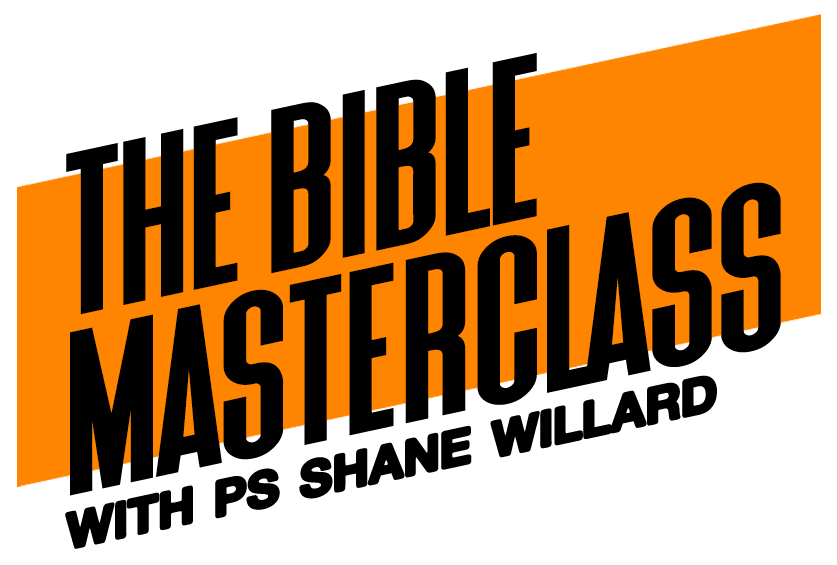
The Bible Masterclass with Ps Shane Willard
3 Tuesdays starting October 01
*STAY TUNED FOR THE NEXT BATCH
*REGISTRATION IS NOW OPEN
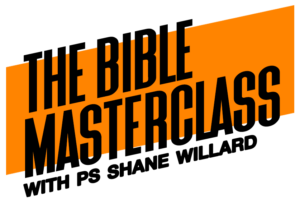
MANILA : The Bible Masterclass with Ps Shane Willard (Online)
3 Tuesdays — Nov 12, 19, 26
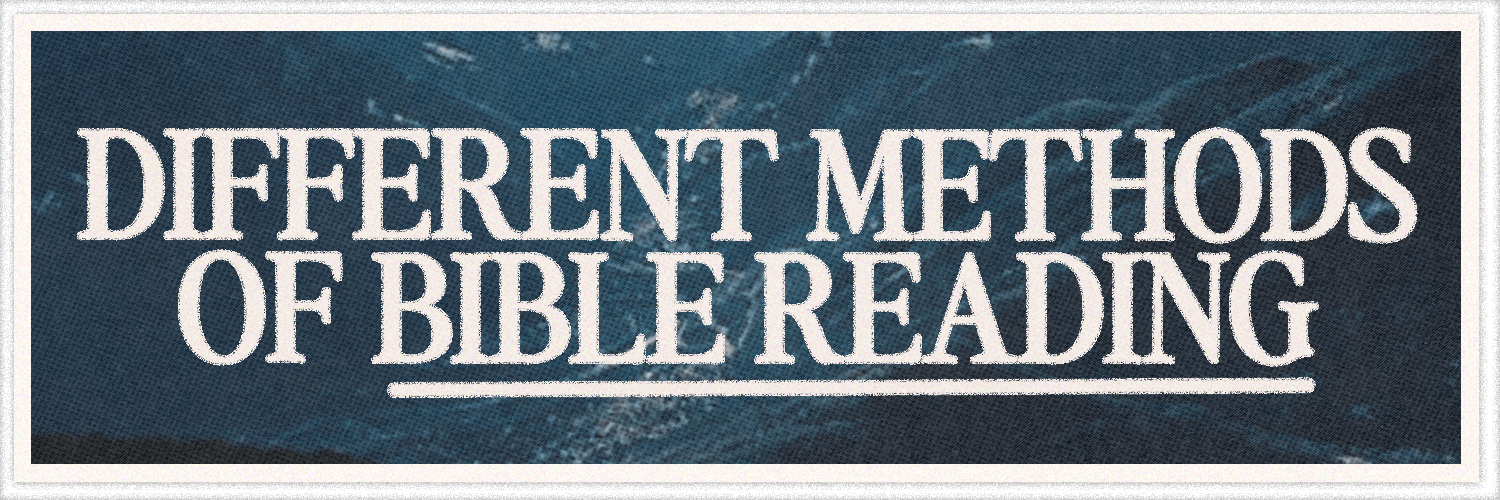
Your Guide to Connecting with God through Reading the Bible
Whether you’re new to reading the Bible or you’ve been at it for years, this guide will help you dive deeper into God’s Word and discover more of who he is. It’s not just about reading for knowledge—it’s also about experiencing God for who he is and growing closer to Jesus.
01 | S.O.A.P. Method
A practical way to reflect on Scripture and apply it daily.
- Scripture: Read a verse or chapter and note what stands out.
- Observation: Notice who’s involved, the tone, and what seems important.
- Application: Ask how it speaks to your life today—what change or shift is God leading you into?
- Prayer: End by praying over what you’ve read and asking God to help you live it out.
02 | Journaling & Lectio Divina
Slow down and let the Word sink deeply into your heart.
- Lectio Divina: Read, Reflect, Respond, Rest—listen for God’s voice and let Scripture shape your intimacy with Him.
- Journaling: Write your thoughts, prayers, and what you sense God is saying. Use it as a two-way dialogue with Him to grow in hearing His voice.
03 | Bible Study
For those ready to dig deeper into context and meaning.
- Structure: Notice the form—story, letter, poem, etc.
- Context: Read surrounding chapters and see the bigger picture.
- Research: Learn about the history and culture behind the text.
- Insight: Focus on the author’s intended message.
- Purpose: Ask why this was written and how it shapes us today.
- Tie to the Gospel: See how the passage connects to God’s love and points us to Jesus.
01 | S.O.A.P. Method
A practical way to reflect on Scripture and apply it daily.
- Scripture: Read a verse or chapter and note what stands out.
- Observation: Notice who’s involved, the tone, and what seems important.
- Application: Ask how it speaks to your life today—what change or shift is God leading you into?
- Prayer: End by praying over what you’ve read and asking God to help you live it out.
02 | Journaling & Lectio Divina
Slow down and let the Word sink deeply into your heart.
- Lectio Divina: Read, Reflect, Respond, Rest—listen for God’s voice and let Scripture shape your intimacy with Him.
- Journaling: Write your thoughts, prayers, and what you sense God is saying. Use it as a two-way dialogue with Him to grow in hearing His voice.
03 | Bible Study
For those ready to dig deeper into context and meaning.
- Structure: Notice the form—story, letter, poem, etc.
- Context: Read surrounding chapters and see the bigger picture.
- Research: Learn about the history and culture behind the text.
- Insight: Focus on the author’s intended message.
- Purpose: Ask why this was written and how it shapes us today.
- Tie to the Gospel: See how the passage connects to God’s love and points us to Jesus.

Take this fun quiz to discover which Bible reading group you should join!
Result: Foundational
You’re seeking a reflective and practical approach to your spiritual journey. This group focuses on personal reflection and applying Scripture to daily life, helping you establish regular spiritual habits.
GROUPS ARE NOW CLOSED! You can join again during our Read My Bible series next year (2025)!
Result: Exploratory
You thrive on contemplative reading that searches for meaning and fosters a deeper spiritual connection. This group is for those who want to find more meaning in Scripture while applying its teachings to everyday life.
GROUPS ARE NOW CLOSED! You can join again during our Read My Bible series next year (2025)!
Result: Comprehensive
You are eager to explore the Bible's richness and complexities, delving into context, genre, and deeper meanings. This group is for those looking to elevate their understanding through in-depth study.
GROUPS ARE NOW CLOSED! You can join again during our Read My Bible series next year (2025)!

As much as reading the bible can be done individually, there is great value in doing it as a community and sharing your learnings with each other. By being in a connect group, you get to find your little family to do life with each other as you grow in your love for Jesus and understanding of the bible.
Consistency comes from commitment and small, intentional choices. If life gets busy, remember why you started, and aim to show up no matter how “little” or “simple” it may seem! Instead of aiming for a full chapter, maybe focus on 5-10 verses each day and reflect on them deeply. Make time in the margins of your day—whether that’s while you’re waiting for coffee to brew or right before bed. Even using an audio Bible while driving or doing daily tasks, when done in the right heart, can draw you closer to Jesus. We’re praying that the habit of reading the Bible would become not just a duty, but a delight!
Absolutely! The beauty of the Bible is that it’s a signpost to the climax of God’s display of his love for us through Jesus. Because the Holy Spirit is alive and active in us, when you re-read a passage or a book, you’ll often notice new insights or connections that didn’t stand out the first time, because he’s speaking to us! Reading them again can deepen your relationship with Jesus — there’s always something new to discover.
That’s totally normal! Some passages need extra time and thought. Try to dig into context, use a study Bible, or check out commentaries. And don’t be afraid to ask others for their perspective—reading and understanding the Bible is a team effort! Sometimes a different translation or revisiting the passage later with a fresh perspective can make a big difference.
Don’t stress! Life happens, and sometimes we miss a day or two. Instead of playing catch-up and overwhelming yourself, just pick up where you left off. God isn’t keeping score—what matters is your heart posture in seeking him. Stay committed to the journey, and remember, it’s about progress, not perfection.
- While we’re learning more about how the Bible points to Jesus, our kids won’t be left out! Each week, they’ll have age-appropriate activities and lessons designed to help them see how the whole Bible points to Jesus.
- Find out what our locations are doing for Favor Kids!
- Favor Kids Manila — Families will receive simple weekly devotionals and a helpful primer to guide parents on when and how to build the habit of reading the Bible at home. To make it even more engaging, kids will get special supplements like bookmarks with a guide on how to read their Bibles for our older kids, fun activity sheets for our younger ones, and weekly video materials to continue the learning at home. All of these resources will be available on our Parents Portal at favor.church/parentsportal and sent directly through our Parents Bulletin at favor.church/parentsbulletin.
- Favor Kids Brisbane — coming soon!
- Favor Kids Seoul — coming soon!
First off, congrats on finishing! A great next step could be the gospels of Matthew, Mark, Luke, and John. Pray about where to go next and let the Spirit lead!
Whatever helps you stay consistent is great! Our experience with Bibles being digital can sometimes mean that they are on devices where we receive notifications and can easily get distracted, but if a digital Bible or app works for you, use it—many have reading plans and helpful notes. Audio Bibles are fantastic! They allow you to listen on the go, and God’s word is just as powerful when heard. The goal is engaging with Scripture, not the format!
There are tons of resources! Study Bibles, commentaries, and Bible dictionaries are great for context. Websites like BibleGateway, Blue Letter Bible, and BibleProject offer free tools and videos to break things down. You can also find podcasts or online sermons that dive into specific books or themes. If you’re not sure about a resource, don’t hesitate to ask about its credibility before diving into it for insight! Whatever route you take, these tools should help you go deeper in your Bible reading.
Context is key! Start by understanding the author, audience, and purpose of the book. Study Bibles usually have intro sections that provide this info. You can also use commentaries or websites like Bible Hub to explore historical and cultural background. Knowing the “why” and “when” behind the text makes it come alive!
There’s plenty of evidence that supports the Bible’s reliability! From archaeological finds to the way ancient manuscripts have been preserved over time, it holds up. If you’re interested in digging into this more, look into resources like “The Case for Christ” by Lee Strobel or check out websites like BibleArchaeology.org. The Bible’s accuracy has been affirmed through history, but ultimately, it’s also about trusting in God’s Spirit to guide you as you read.












